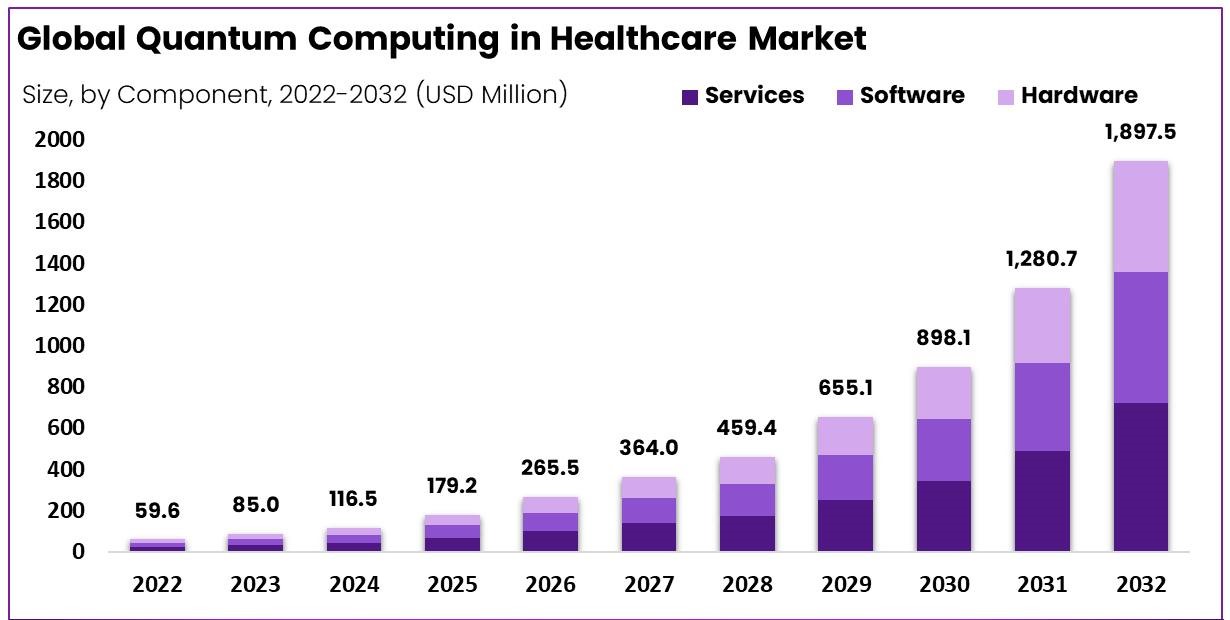The Rise of Quantum Computing: Implications for Mobile Marketing
Quantum computing is poised to revolutionize various industries with its groundbreaking capabilities, and mobile marketing is no exception. As this technology advances, understanding its implications becomes crucial for marketers looking to stay ahead in an increasingly competitive digital landscape. This article delves into the transformative impact of quantum computing on mobile marketing, exploring how enhanced computing power and data security can reshape marketing strategies.
We begin by providing a concise overview of quantum computing, including its fundamental principles and current advancements. By bridging the gap between theoretical quantum mechanics and practical marketing applications, we will uncover how quantum computing can elevate mobile marketing to unprecedented levels of personalization and efficiency. This exploration not only highlights the potential benefits but also addresses the challenges and ethical considerations that come with the adoption of quantum technology in marketing strategies.
Quantum Computing’s Role in Mobile Marketing

Quantum computing, with its exceptional processing speed and capability to handle complex datasets, offers significant advantages in the realm of mobile marketing. This section explores how quantum computing is set to transform mobile marketing strategies through enhanced personalization, real-time data processing, and robust security measures.
1. Personalization
Quantum computing enables the handling of vast amounts of data at unprecedented speeds, allowing for more complex and accurate analysis of consumer behavior. By utilizing quantum algorithms, marketers can identify patterns and preferences at a granular level, tailoring their approaches to individual consumer needs and behaviors. This level of personalization could lead to highly targeted advertising that resonates more effectively with each user, potentially increasing engagement and conversion rates.
2. Real-time Data Processing
In the fast-paced world of mobile marketing, the ability to process data in real time is crucial. Quantum computing can analyze large streams of data from multiple sources almost instantaneously. This capability allows marketers to optimize their campaigns on the fly, adjusting tactics based on real-time user interactions and feedback. For instance, dynamic ad placements and real-time bidding in programmatic advertising can be greatly enhanced, making advertising efforts not only quicker but also more relevant to the current context of the user.
3. Security
Quantum cryptography presents a new paradigm in securing data—a vital aspect of mobile marketing where consumer data privacy is increasingly scrutinized. Quantum encryption methods are considered unbreakable by conventional computing, offering a way to protect sensitive consumer information effectively. This advanced security can help in building trust with consumers, assuring them that their personal data is safe and handled with the utmost care.
Challenges and Considerations
While the integration of quantum computing into mobile marketing holds promising potential, several challenges and considerations must be addressed to fully leverage this advanced technology. These challenges span technological limitations, cost implications, and ethical concerns.
1. Technological Barriers
Quantum computing is still in its developmental stages and not yet widely accessible. The hardware required to run quantum computers is extremely sophisticated and sensitive, requiring specific conditions such as ultra-low temperatures. Additionally, quantum computers capable of performing complex, real-world tasks are not yet available on a commercial scale. This creates a significant barrier for widespread adoption within the mobile marketing industry, which relies on readily available and stable technology.
2. High Costs and Resource Intensity
The current cost of developing and maintaining quantum computing systems is prohibitive for most organizations. The infrastructure and expertise required to operate quantum technology are substantial, often necessitating significant upfront investment. For mobile marketing firms, this could mean a high barrier to entry, limiting the use of quantum computing to larger corporations or specialized applications, unless costs decrease as the technology matures.
3. Ethical Considerations
The power of quantum computing introduces complex ethical issues, particularly concerning data privacy and consumer manipulation. With enhanced data processing capabilities, marketers could theoretically predict and influence consumer behavior at an unprecedented level, raising concerns about consumer autonomy and consent. Moreover, the transition to quantum-resistant encryption methods will be crucial to safeguard data against potential quantum attacks, posing additional ethical and logistical challenges.
4. Scalability and Implementation
Integrating quantum computing into existing digital marketing strategies poses scalability and implementation challenges. Current marketing platforms and software may need significant adaptation or redesign to fully utilize quantum computing capabilities. This integration process could be complex and resource-intensive, requiring ongoing support and updates.
Future Outlook of Quantum Computing and AI in Marketing
The future intersection of quantum computing and artificial intelligence (AI) in marketing is set to reshape the landscape of digital strategies and consumer engagement. This section explores the predictions and potential developments over the next decade, considering how these technologies will influence marketing approaches.
1. Advanced Predictive Analytics
Quantum computing enhances AI capabilities by enabling faster processing of larger datasets, which can significantly improve predictive analytics. Marketers will likely harness this power to predict consumer behavior with greater accuracy and detail. As quantum AI evolves, we can expect models that not only forecast outcomes but also provide deeper insights into the why behind consumer decisions, leading to more effective and nuanced marketing strategies.
2. Hyper-Personalized Consumer Experiences
The combination of quantum computing and AI will push personalization to new heights. Marketers will be able to create hyper-personalized experiences at scale, dynamically adjusting content, recommendations, and advertisements based on real-time data. This level of customization will enhance user engagement and satisfaction, potentially increasing brand loyalty and consumer lifetime value.
3. Quantum-Enhanced Machine Learning
Machine learning models benefit immensely from quantum computing's ability to handle vast and complex datasets quickly. This synergy will likely result in more sophisticated machine learning algorithms that can learn from data more efficiently, leading to smarter automated systems in marketing. These systems could automate complex decision-making processes, optimize budget allocations, and even innovate new marketing channels and tactics autonomously.
4. Revolution in Real-Time Decision Making
Real-time decision-making will become more prevalent and impactful in marketing as quantum computing reduces the time needed for data analysis from hours to seconds or milliseconds. This speed allows for immediate adjustments to marketing campaigns, maximizing effectiveness and minimizing waste. For instance, quantum computing could enable real-time A/B testing at an unprecedented scale, providing instant feedback and allowing for rapid iteration and optimization.
5. Ethical and Privacy Implications
As the capabilities of quantum computing and AI expand, so do the ethical considerations. Marketers will need to navigate increased scrutiny around data use and consumer privacy. Quantum technologies could either mitigate or exacerbate privacy concerns depending on their application. Proactive ethical guidelines and robust quantum-safe security measures will be crucial to maintaining consumer trust and compliance with regulatory standards.
6. Industry Disruption and New Competencies
As quantum computing becomes more mainstream, it will likely disrupt existing market dynamics, favoring organizations that adapt quickly to the new technology. Marketing professionals will need to develop new competencies around quantum computing and AI to stay relevant. Additionally, new roles may emerge, specializing in the intersection of quantum technology, AI, and marketing strategy.
Conclusion
Looking ahead, the integration of quantum computing and AI holds transformative potential for marketing, promising unprecedented levels of efficiency and personalization. However, as the industry moves towards this technologically advanced era, it must also address the significant ethical and logistical challenges that accompany these innovations. For marketers, staying informed and agile will be key to leveraging the benefits while navigating the complexities of this new frontier.

